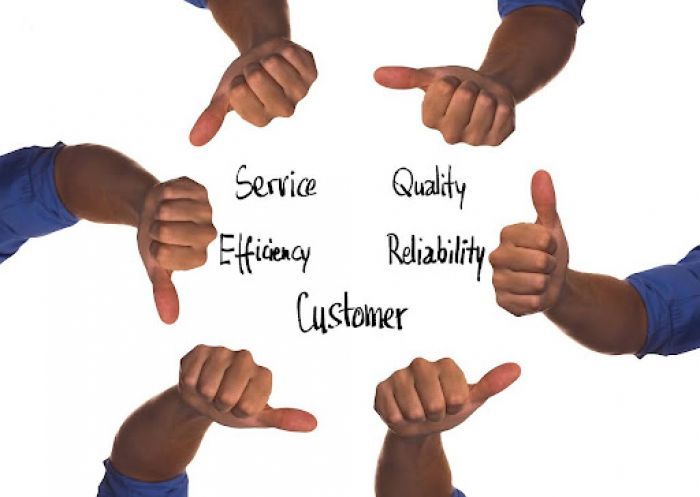On This Page
- 1. Streamline and standardize your processes
- 2. Consider HR software for small businesses
- 3. Use data to make smarter decisions
- 4. Field management software
- 5. Hire strategically
- 6. Build stronger relationships with subcontractors and suppliers
- 7. Use data to make smarter decisions
- 8. Strengthen your online presence
- 9. Prioritize your clients experiences
- 10. Learn how to delegate
- Scaling your small construction business doesn’t mean working longer hours

Scaling a small construction business can sometimes be a challenge, especially when you’re dealing with tight deadlines, limited resources, and high competition.
Growth doesn’t mean taking on more risk and working longer hours; it’s much more than that. Whether you’re managing a small crew or looking to expand into new markets, refining how your business operates is the key to long-term success.
In this article, we’ll dive deeper into learning more about how you can scale your small construction business.
1. Streamline and standardize your processes
One of the most effective ways to scale your construction business is by streamlining and standardizing your core processes. When every construction project you have follows a clear, repeatable workflow, from initial client consultation to project completion, you reduce errors, save time, and increase efficiency.
Create documented procedures for scheduling and on-site communication to make sure your team knows exactly what to do at each stage. Use digital tools to automate routine tasks like invoices, timesheets, and job tracking, freeing up your time for strategic decision-making.
Standardized processes also make it easier to onboard new employees and maintain quality as your business grows. The more consistent and efficient your operations, the better equipped you are to take on larger projects and new clients without losing control.
2. Consider HR software for small businesses

As your construction business grows, managing your team efficiently becomes more complex. Small business HR software can streamline important tasks like hiring, onboarding, payroll, time-off tracking, and compliance, freeing up time and reducing any administrative headaches.
Instead of going back and forth between spreadsheets, and paperwork, you’ll have a platform that manages employee records, certifications, and performance reviews. For construction teams working in the field, many HR platforms offer mobile apps that allow for easy clock-ins, schedule updates, and communication.
When you automate HR processes, you aren’t only saving time but also creating a more organized and professional workplace, one that supports growth and attracts skilled workers.
3. Use data to make smarter decisions

As your construction business grows, relying on gut instincts alone won’t do the work for you, so using data helps you make much smarter and more confident decisions. Whether it’s tracking job costs, employee hours, project timelines, or equipment usage, collecting and analyzing data gives you a clear picture of what’s working and what isn’t.
When using the right tools, you can spot trends, reduce waste, and improve how you estimate future jobs. For example, if certain projects run over the budget, data can help pinpoint the cause, whether it’s materials, labor, or scheduling issues. These kinds of insights help you plan better, and avoid any costly mistakes.
You don’t need to be a data expert, just start out with the basics using software you already have, like field management or HR tools. Over time, data-backed decisions can help you grow more strategically, work more efficiently, and stay ahead of competitors.
4. Field management software
Investing in field management software is a smart move for small construction businesses looking to scale efficiently. These tools help you stay on top of every job site by centralizing real-time updates, schedules, and communication between office staff and field crews.
With features like mobile access, daily logs, time tracking, task assignments, and photo documentation, you can reduce miscommunication and keep projects running smoothly.
Field management software also improves accountability and transparency, giving you clearer insights into project progress, team productivity, and potential delays. As your business grows, managing multiple projects without the right platform becomes much more challenging for construction teams.
With the right software, you can coordinate with your team much more effectively, and make much better decisions.
It’s not just software that supports scaling—equipment planning matters too. For example, choosing the right lift for your project can save significant time, cost, and effort on-site. Here’s a detailed guide on how to choose the right lift for your construction project, which can help ensure you’re working smarter, not harder.
With the right combination of tools and planning, you can coordinate with your team much more effectively and make better operational decisions.
5. Hire strategically
When you’re growing your construction business, the people you bring on board can make a significant difference. Think about where your construction business is heading and what roles will help you get there. This isn’t only about thinking about what you’ll accomplish today, but six months or a year from now.
Look for team members who are not only skilled but a good fit for your company culture. Maybe you need someone who can lead a crew, manage client relationships, or take the pressure off your day-to-day tasks.
It’s also okay to bring in subcontractors for flexibility without overextending. A few great people who are committed, capable, and aligned with your goals are far more valuable than just filling spots.
Strategic hiring helps your team grow stronger, not just bigger.
6. Build stronger relationships with subcontractors and suppliers
Your subcontractors and suppliers are essential to the success of your construction projects, and your business as a whole. Building strong and reliable relationships with them can significantly reduce costs, save you time, and improve the quality of your work.
Start by clearly communicating, paying on time, and showing respect for their expertise and time. Over time, these small efforts build trust and loyalty, which can lead to much better pricing, faster turnarounds, and more flexible support when schedules shift.
Check in regularly, share your project goals, and be transparent about expectations. When your subcontractors and suppliers feel valued, they’re more likely to go the extra mile. Strong relationships also mean fewer last-minute surprises and smoother project execution, key ingredients for scaling a construction business with confidence.
7. Use data to make smarter decisions

As your construction business grows, relying on gut instincts alone won’t do the work for you, so using data helps you make much smarter and more confident decisions. Whether it’s tracking job costs, employee hours, project timelines, or equipment usage, collecting and analyzing data gives you a clear picture of what’s working and what isn’t.
When using the right tools, you can spot trends, reduce waste, and improve how you estimate future jobs. For example, if certain projects run over the budget, data can help pinpoint the cause, whether it’s materials, labor, or scheduling issues. These kinds of insights help you plan better, and avoid any costly mistakes.
You don’t need to be a data expert, just start out with the basics using software you already have, like field management or HR tools. Over time, data-backed decisions can help you grow more strategically, work more efficiently, and stay ahead of competitors.
8. Strengthen your online presence
Even in the construction industry, having a strong online presence is essential for growth. Today’s clients, whether homeowners, developers, or contractors, often begin their search for reliable construction partners online. That means your website, social media, and business listings need to reflect your professionalism and capabilities.
Start by building a clean, mobile-friendly website that highlights your services, past projects, client testimonials, and contact info.
Post regular updates on social media, such as project progress, team highlights, or client success stories, also help build credibility and stay top-of-mind. As your business scales, a strong online presence supports brand awareness, attracts quality leads, and sets you apart from less digitally-savvy competitors.
9. Prioritize your clients experiences

Delivering a great client experience is the key to scaling your construction business sustainably. When clients feel heard, respected, and well taken care of, they’re much more likely to refer you to others, leave positive reviews, and return for future projects.
That kind of trust and loyalty can fuel long-term growth without relying on constant new outreach. Prioritize clear communication, stick to project timelines, and be transparent about costs and updates.
Small comments like post-project check-ins or thoughtful thank-you notes can seriously make a difference in leaving a positive experience for your clients. Figure out how you’ll manage feedback and address concerns quickly to maintain a strong reputation.
As your operations become more efficient, use that to improve client relationships. A smooth professional experience can turn one-time clients into lifelong ones that will significantly help you in acquiring other clients.
After all, word-of-mouth is one of the most powerful ways to gain new customers. 88% of consumers trust customer recommendations.
10. Learn how to delegate
A business can’t be successful if you don’t learn how to delegate. After all, as your construction business grows, trying to do everything yourself will eventually slow you down. That’s why documenting your processes and delegating tasks is essential for scaling efficiently.
Start by creating simple, step-by-step guides for recurring tasks like bidding, client communication, job site safety, and project management. This doesn’t only make training new employees easier, but also ensures consistency across all projects.
Once your systems are clearly outlined, delegate responsibilities to team members you trust, regardless if it’s supervising crews, ordering materials, or handling admin work. Delegation frees up your time and helps you focus more on business development and strategic growth. It also helps your team focus on business development and strategic growth.
The good side is that your team also learns on how it can take ownership, which improves productivity and employee morale.
Scaling your small construction business doesn’t mean working longer hours
Many might get the wrong idea of thinking that if they scale their small construction business, they’ll need to work longer hours or take on more risk, but this isn’t necessarily true. It’s all about working smarter.
By building a strong team, you can grow your business with confidence and control. Each smart operational move frees up your time and resources to help you focus on what really matters: Delivering great work and building a solid reputation.
Growth is never overnight, but with the right systems in place, you can take on bigger projects, serve more clients, and scale sustainability without sacrificing quality or burning out.
Post Comment
Be the first to post comment!





